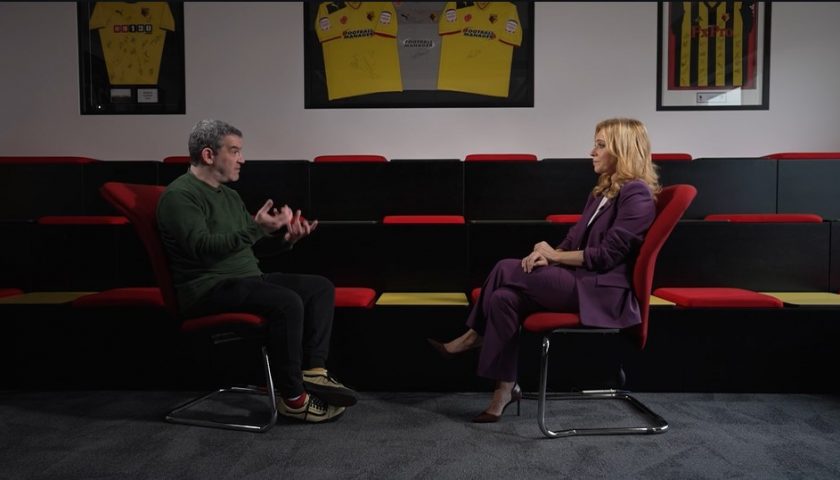Marketplace Europe learns why video game developers have sights set on Europe

In this month’s episode of Marketplace Europe, CNN’s Anna Stewart and Nina dos Santos go behind the scenes at some of the continent’s top games studios to learn how they are trying to open up the industry to new demographics.
As the video games industry is hitting revenue records, developers are seeking to reach more users than ever before. The Studio Director of Sports Interactive, Miles Jacobson, explains the recent success of the Football Manager game series, “Football Manager 23 has become our most played game and we’re 60% up on players year-on-year. Part of that is because one of the ways that games is really growing is through subscriptions.”
He adds that this business model which can be found on Microsoft and Apple Arcade, tends to bring in a lot of new and returning customers. Apps such as these are now the industry’s biggest source of revenue in Europe.
Editor-in-Chief for Maximum PC, Guy Cocker, says “Europe has an amazing reputation within the video game development community.” Included in some of Europe’s biggest games are Far Cry and Assassin’s Creed from France’s Ubisoft, and Saints Row and Tomb Raider from Sweden’s Embracer Group.
By nature, this industry is one that is constantly evolving. Miles shares the main changes in the sectors that he has noticed in the last few years, “The expectation from consumers is much higher than it’s ever been now. It’s the technological changes that really keep the industry fresh and exciting. It’s kind of trying to predict what’s going to be next technology wise.”
Nina dos Santos later meets Jo Twist, CEO of British gaming industry body Ukie, who wants to change the overall perception of gamers. “It’s so important that our politicians and our decision makers understand the value of this sector in the UK and its contribution to the UK economy. People often think it’s a kid’s thing but actually, the average age is thirty something. Its fifty-fifty roughly gender split across all platforms.”
David Gowans, Head of Creative Technologies at Barclays admires the vibrancy of the games industry and seeks to support it, “There’s incredible amount of growth that we’re seeing in the industry. At Barclays we want to help support that and help the industry grow in any way that we can.”
Across London, game developers at Hutch are looking to attract and nurture new talent. The CEO, Shaun Rutland, says “I think there’s a lot of talent out there that hasn’t been tapped. I came from a really untraditional background in terms of getting into doing this. So I feel quite passionate about the subject.”
Shaun admits that although initial industry biases existed at the beginning, the company is working to become more inclusive, “You need to be more diverse if you want to be commercially minded, you want to build for your players. As a company, we’re really proud that we’re almost as diverse as our player base, and we know we’ve got lots of work to do.”
Xbox Head of Operations Dave McCarthy shares a similar view, “We see demographics of all types and all shapes playing all genres, which is really our vision – we want Xbox to be a place where everyone can play and have fun.” He outlines the recent inclusivity project Xbox Adaptive Controller, “a wonderful collaboration that we did in consultation with the disability community to allow them to have a controller that takes a bunch of different peripheral inputs and essentially acts like any regular Xbox controller would.”
As the gaming pool gets bigger, so does the potential for growth. Jo Twist hopes that it could even help the economy through tough times, “We continue to push boundaries in technology. Games are a hugely popular and important pastime, and part of our entertainment culture. They are going to continue to grow and it is about understanding the economic or the global opportunity and market opportunity for games.”
See more from Marketplace Europe:
https://edition.cnn.com/specials/business/marketplace-europe







Leave a Reply